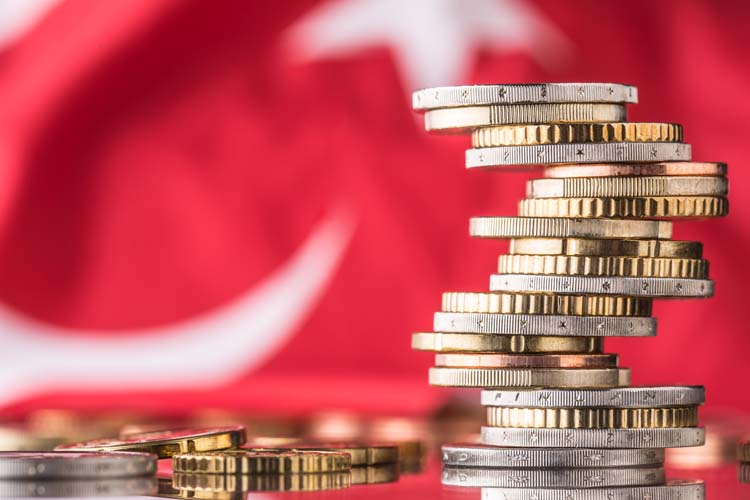Last Updated on 02/06/2023
Many international investors have been hesitating when it comes to investment in Turkey due to growing economic imbalances brought by the noticeably different post-election policy trajectories outlined by the current government and the opposition alliance. Yet, the conclusion of the elections on 28th May with Erdoğan Victory gives them optimistic signs announcing a new era of post-election investment in Turkey.
In this article we will try to provide you with an outlook on the investment landscape in Turkey after the elections pointing out the opportunities and the eventual risks.
Turkey’s Post-Election Investment Climate: Opportunities and Risks

After his 3rd victory, President Recep Tayyip Erdogan will manage several pressing challenges that Turkey is now dealing with. The most important issue of which is the economic situation.
In his victory speech on Sunday night, the president emphasized inflation as the main issue Turkey faces. And he affirmed that resolving the problems caused by inflation and price increase seems to be the most urgent topic in the coming days. In fact, easing the inflation sharp peak will strengthen the economy and encourage thus post-election investment in Turkey.
In fact, Erdoğan affirmed in the same speech his ability to solve this issue alluding to his 11-year tenure as premier prior to his election as president in 2014 when he had to overcome the same challenging situation. We remind that last year, inflation reached an all-time high of 85% before falling to 44% last month.
Furthermore, some economic experts express their trust in the Turkish Currency. “Given that Erdoğan will remain in office following the elections, we have a pretty pessimistic outlook on the Turkish lira,” Brendan Mc Kenna, an emerging markets economist and currency trader at Wells Fargo, told CNBC
Moreover, according to TUIK data, in the first quarter of 2023, GDP with chain-linked volume index (2009=100) increased by 4.0% in comparison to the same period the year before. And this constitutes an optimistic sign for the Turkish economic recovery.
Does Turkey attract Foreign Investors after the Elections?

Since at least 2003, Turkey’s economy has grown and foreign direct investment (FDI) flows have risen while Erdogan and the Justice and Development Party (AKP) have been in power. Under Erdogan, the country’s FDI statute was implemented, bringing in investment across a wide range of industries. According to a report by the President’s Investment Office, Turkey claims to have attracted roughly $225 billion in FDI between 2003 and 2021, compared with $15 billion from 1980 to 2002.
Foreign investors have put their plans of post-election investment in Turkey until learning the new administration’s FDI and diplomatic policies to take. Yet, the victory of Erdoğan gives them optimistic signals when it comes to FDI policy in Turkey.
According to the UN Conference on Trade and Development, Germany ($19.3 billion), the US ($14.7 billion), the UK ($13.7 billion), Italy ($11.5 billion), and Iraq ($11.1 billion) were Turkey’s main export trading partners in 2021.
According to data from GlobalData, Germany was the biggest foreign investor in Turkey in 2022 with 58 projects, followed by the US with 38, the UK with 23, and Italy with 18.
International relations to boost the FDI flow to Turkey after the elections
Even though Turkey’s most lucrative trade connections are with Western countries, Erdogan and the AKP-led administration have been expanding trade ties with countries like the United Arab Emirates (UAE). A free trade agreement between Turkey and the UAE was concluded in March 2023. This agreement aims to grow bilateral trade with the nation to $40 billion within the next five years. Consequently, experts expect investment flows in Turkey from UAE after the elections.
Additionally, despite being a member of NATO, Turkey remained neutral in the Russia-Ukraine conflict. Additionally, it has served as a sort of conduit between Russia and the West by, for instance, allowing an agreement to transport wheat to Russia and Ukraine via the Black Sea. Moreover, Turkey has been significantly more directed toward China and the East under Erdoğan policy. Therefore, going forward in the same direction makes economists expect important flows of post-election investment in Turkey.
Investing in Turkey Real Estate After elections

The conclusion of the elections signals considerable stability and the beginning of a new stage of growth. It gives optimistic signs that it might be the best time to buy property in Turkey and to consider investing in Turkey real estate.
International investors were threatened by the eventual ban on foreign real estate purchases in Turkey that the opposition promised. Therefore, the victory of Erdoğan deleted their worries and gave them back trust in the Turkish real estate market, and encouraged them to consider again post-election investment in Turkey. However, some other investors are still hesitating and prefer to wait until they make sure that the economic climate is stable and advanced again.
Many experts predict that in the near future, real estate prices in Turkey will be higher than ever before. This is because of the country’s high population density as well as the influx of foreigners who brought back their interest in the Turkish real estate market now that the election is over.
See the best investment opportunities in 2023.
We recommend eventual investors keep a close eye on the climate of post-election investment in Turkey. In fact, the establishment of the new government in the few coming days would bring decisive changes that would aim to boost the economy of Turkey and consequently enhance the investment landscape in Turkey.



